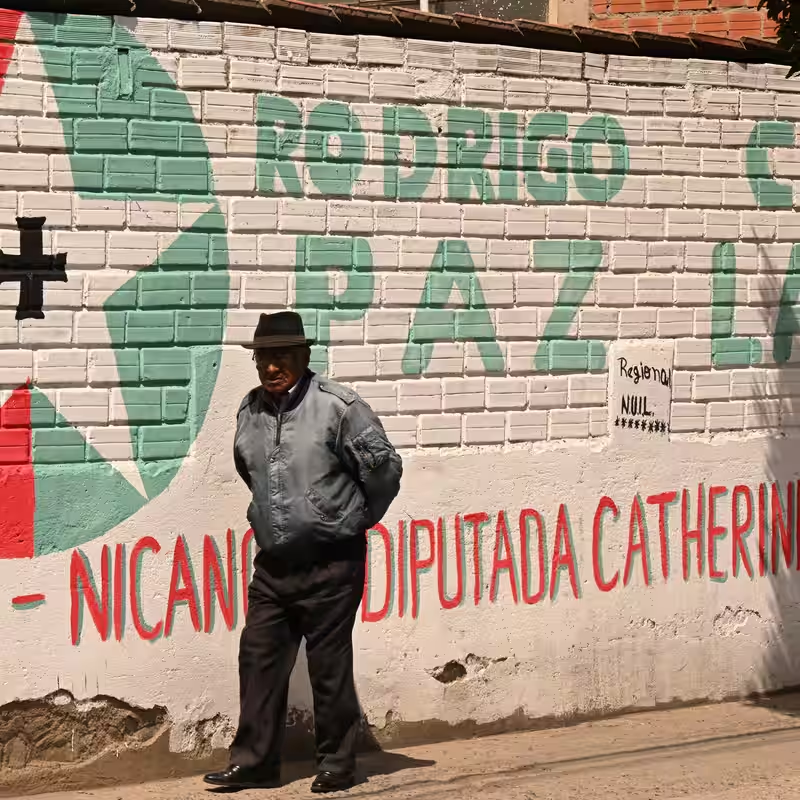Table of Contents
- Election Overview
- Key Issues Driving Voters
- Meet the Candidates
- What This Means for U.S. Relations
- Vice Presidential Drama Steals the Spotlight
- When to Expect Results
- Sources
Bolivia’s Presidential Runoff: A Nation at a Crossroads
This Sunday, October 19, 2025, Bolivians head to the polls for a high-stakes presidential runoff that could redefine the country’s political and economic future. After two decades of leftist rule under the Movimiento al Socialismo (MAS), voters now face a choice between two conservative candidates—both promising economic revival and institutional stability.
The runoff follows a surprising first-round result in August, where centrist-right candidate Rodrigo Paz surged from the bottom of the polls to claim 32% of the vote. He now faces former president Jorge “Tuto” Quiroga in what analysts describe as a toss-up election.
Key Issues Driving Voters
Bolivia’s presidential runoff is being shaped by a deep economic crisis. Citizens are grappling with soaring prices, fuel shortages, limited access to U.S. dollars, and widespread frustration with government inefficiency.
“There’s a political crisis, an institutional crisis, and a social crisis,” said Bolivian political analyst Carlos Saavedra. “Whoever wins will inherit a country on fire.”
While both candidates agree on the need for economic reform, they diverge sharply on how to achieve it—particularly on the role of state subsidies and privatization.
Meet the Candidates
Rodrigo Paz: The Pragmatic Conservative
Paz, son of a former Bolivian president, has positioned himself as a bridge between old and new Bolivia. He pledges to protect social programs while improving fiscal management—without leaning on international lenders like the IMF.
His campaign targets rural voters, older citizens, and former MAS supporters wary of radical change. “He’s trying to show he’s too criollo—too authentically Bolivian—to be swayed by foreign agendas,” said analyst Verónica Rocha.
Jorge “Tuto” Quiroga: The Pro-Business Reformer
Quiroga, a U.S.-educated former president, champions aggressive market liberalization. He proposes privatizing Bolivia’s state-controlled energy sector—a move that could attract foreign investment but risks dismantling key social safety nets.
“Some Bolivians are so fed up with the economic status quo that they’re willing to gamble on Quiroga’s extreme vision,” said Gustavo Flores-Macías, a Latin American politics professor at the University of Maryland.
What This Means for U.S. Relations
U.S. Secretary of State Marco Rubio has called the runoff a “promising step” after years of what he described as “anti-American governance.” Quiroga has openly pledged to strengthen ties with Washington and court international investors.
Paz, meanwhile, has kept U.S. relations on the back burner—possibly a strategic move in a country where memories of 1980s–90s neoliberal reforms still sting.
Vice Presidential Drama Steals the Spotlight
While the presidential race remains tight, the real fireworks have come from the vice presidential contenders.
Edmand Lara, Paz’s running mate and a former police captain, has gained viral fame for his blunt social media presence—but also raised eyebrows for allegedly harboring presidential ambitions of his own.
On the other side, Quiroga’s pick, tech entrepreneur Juan Pablo Velasco, faces backlash over resurfaced racist social media posts from 15 years ago, including one calling for violence against Indigenous highlanders. Though Velasco denies authorship, Bolivian fact-checkers have verified the posts.
“This controversy exposes Bolivia’s deep racial and class divides,” Saavedra noted.
When to Expect Results
Polls open at 8 a.m. and close at 4 p.m. local time. Preliminary results are expected by 8 p.m.




